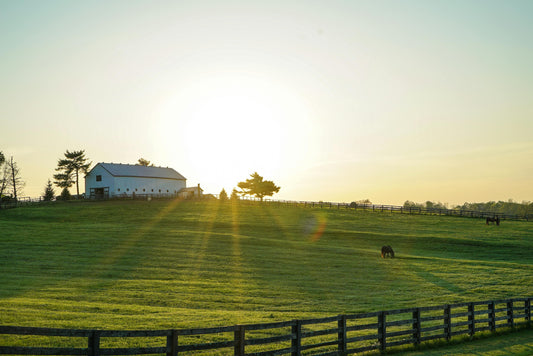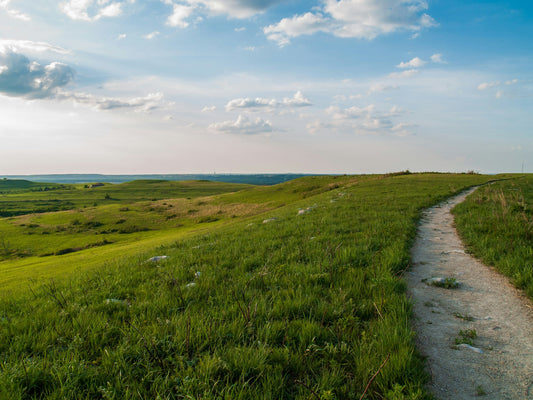The Legality of Hemp in Alabama: A Comprehensive Guide
Over the past couple of years, news stories in the United States have been filled with Hemp for the right reasons. The board is mile-wide, and everyone from farmers to entrepreneurs to consumers is piling into it from everywhere it can go. At the same time, hemp’s status is still a little muddled, state by state.
That raises many questions about hemp and related products like, is Delta 9 legal in Alabama?. It is a very confusing legal landscape, and many businesses and consumers are confused about what is or is not allowed.
Alabama farmers, retailers, and consumers looking to purchase hemp-derived products need to know the legal framework. We want to give anyone in the hemp industry the ability to break down the key aspects of Alabama’s cannabis regulations.
So, this guide will examine Alabama’s hemp laws, covering licensing, compliance, and everything about the current legal status of hemp in Alabama.
What is Hemp? Hemp vs Marijuana
In any event, cannabis has been grabbing public attention for rights reasons, as supporters and its opponents have locked horns back and forth in courts of several states in the U.S. for a number of years.
But that’s not to say all cannabis plants are equal!
You don’t know what’s going on if you don’t know the difference between marijuana and hemp and what Alabama is upto when it comes to answering, is Delta 9 Legal in Alabama?
Hemp vs. Marijuana: The Legal Distinction
Hemp and marijuana are not akin, though both are grown from the same plant, Cannabis sativa. It’s just a different chemistry, basically a different amount of Delta-9 THC is present in both.
Federal law definition of hemp is as follows:
"The plant Cannabis sativa L. and any part of that plant, including the seeds thereof and all derivatives, extracts, cannabinoids, isomers, acids, salts, and salts of isomers, cultivated or possessed by a licensed grower or otherwise in accordance with the state's USDA-approved regulatory plan, whether growing or not, with a delta-9 tetrahydrocannabinol concentration of not more than 0.3 percent on a dry weight basis. Industrial hemp shall be considered an agricultural crop or an agricultural commodity, or both, in all respects under state law. The term excludes marijuana as defined in subdivision (14) of Section 20-2-2."
It’s also true that marijuana has a lot of Delta 9 THC, in its case anywhere from 15 percent and up to 30 percent.
Alabama Classification for Marijuana: illegal under federal law, prohibited for recreational use.
Is Delta 9 Legal in Alabama? The Groundwork
The history of highs and lows for hemp in Alabama is saturated. For decades now, everything from hemp to marijuana was illegal. As soon as the 2018 Farm Bill allowed states to rule the growth and production of hemp, all of that changed.
Early Efforts: The Alabama Pilot Program
Following the Farm Bill, Alabama wasted no time, beginning its pilot program, on a licensed basis, to grow industrial hemp, a big step forward for Alabama farmers sick of looking for new crops to diversify their agricultural mix.
However, meanwhile, in 2019, the Alabama Department of Agriculture and Industries (ADAI) issued farmer licenses to grow hemp. This was a research and commercial production-based program based on the knowledge of the development of hemp crops and their economic potential.
This program is so successful that Alabama's current regulatory framework allows licensed growers to grow hemp for many uses.
Key Legal Milestones
2018: Hemp cultivation was legalized by the federal Farm Bill.
2019: Alabama launched pilot hemp cultivation.
2021: The DEA responds to Alabama’s Board of Pharmacy about Delta 8 THC.
Responding to a request from the Alabama Board of Pharmacy concerning the legal status of Delta-8, the DEA sent areply dated September 15, 2021. The DEA responded by saying:
"Cannabinoids extracted from the cannabis plant that have a delta-9 THC concentration of not more than 0.3 percent on a dry weight basis meet the definition of "hemp" and thus are not controlled under the CSA.”
Thanks to this ability to hit these milestones, Alabama's hemp industry has been growing, processing, and selling hemp products as long as it makes sure to comply with state regulations.
The good news is this has been cleared up, but selling Delta 8 products is still a gray area in Alabama. The wealth of these products to be attacked by Copper Line Beverages is, indeed, to the state's restrictions on the sale of these products at package stores.
Legal Precedents
The TSTL Holdings v. The primary legal battle was in Alabama in 2021, so the Alabama Department of Public Health couldn’t do anything about companies selling hemp derivative products as long as they were legal hemp. Those products could yet be the case's usual appeal and it's wasting away in legal jeopardy.
Alabama's Current Hemp Regulations
Key Regulations to Remember
To uderstand whether is Delta 9 legal in Alabama, one must ensure that Delta 9 content is under 0.3% if the hemp is to be legal. Cultivation is licensed, but testing and reporting are strictly controlled.
In case the crop is non-compliant, it must be destroyed. Otherwise, it could make it to the market. Breaking such types of rules might lead to punishment like a huge amount of fines, losing licenses, and even serious criminal charges.
However, staying compliant is also very important otherwise, businesses can get into legal trouble.
Hemp Cultivation in Alabama
In Alabama, to grow hemp, you must get a license from the ADAI if you so choose to do so. This helps to ensure that only sound business minds are allowed to grow hemp in the state's hemp industry.
A Step-by-Step Guide to Getting a License
Application Submission: To get started, complete the online application with ADAI. You must furnish details on your proposed cultivation site and practice in considerable detail.
Criminal Background Check: You need a criminal background check. You will not be eligible if you’ve previously been convicted of a felony involving controlled substances within the past 10 years.
Fees and Payment: They also charge applicants an already nonrefundable processing fee. In addition, the approved growers will pay an annual licensing fee.
Pre-Harvest Testing: If growers want to avoid non-compliance, they must submit samples of the crops for THC testing before growing them.
Inspection and Compliance: Investigators inspect hemp farms to ensure that state regulations are followed, ADAI officials report. Violation may result in loss or revocation of a violator's license.
Best Practices for Businesses – Alabama State Compliance
While Alabama has come a long way in creating a legally regulated market for hemp, this doesn’t mean operators of any sort will not need to be compliant. Alabama hemp farmers, processors, and retailers should ensure that their businesses conform to Alabama laws.
Best Practices for Compliance
Regular THC Testing: The law that determines what is legal hemp is the 0.3% Delta 9 THC threshold. To ensure your hemp products remain within legal limits, you must regularly test them. The results of these tests are carried out in accredited laboratories. In Alabama, pre-harvest testing is mandated, and crops with THC content beyond the limit have to be destroyed.
Accurate Labeling: Products sold in Alabama must be labeled hemp-derived. That’s where they’ll show you the THC content, where it was batched when the expiration was, and any extra certifications they have. Correctly labeling your products also helps consumers make informed choices while keeping you legal through state regulations.
Strict Record-Keeping: The only thing proven is compliance, and even then, only if you can document it. All product, test results, and sales transactions must be recorded and maintained in Alabama for at least 3 years. Records may save your business from an audit or legal inquiry.
Clear Packaging Guidelines: All hemp products must be packaged child-proof in Alabama, whether consumed or not. Using specially made tamper-evident packs for CBD edibles and tinctures is advised.
Employee Training: Your team in Alabama better be fully aware of the rules. Now it’s been trained on how to sell it, test it, and handle it. You teach your staff and reduce the likelihood of a breach inadvertently occurring.
Future Changes to Alabama's Hemp Laws: What to Expect?
Though its legal landscape is still unwound, Alabama has come up with some way to draft clear hemp regulations with practical steps when it comes to answering, is Delta 9 legal in Alabama?
What Might Change?
Delta-8 THC Regulation: Delta-8 THC regulation at its heart is the most significant change component. Alabama is an exception to the Indiana standard since Delta 8, Delta 9 THC, and any hemp that constitutes the background of Delta 8 is legal, provided the hemp has lower than 0.3 percent Delta 9 THC.
And more and more, they will get stricter regulation, or outright bans, as federal agencies pay more attention and lawsuits proceed.
Simplifying the Licensing Process: Hemp industry stakeholders across Alabama have been expressing concerns over the complexity and requirement of the cost of licensing for hemp. However, the state may institute streamlined procedures encouraging the more likely, though smaller number, of small businesses and independent farmers onto the market.
Expansion of Approved Uses: Such a hemp crop would boost the number of uses the state can employ for hemp, including biofuel, construction material, or pharmaceuticals. Alabama just might realize that protecting and standing by innovation in things like cannabinoids is a good idea as more research proves the worth of these things.
Preparing for Future Change
Those in the hemp industry should be updated with these potential changes. Be sure to look back with the Alabama Department of Agriculture and Industries (ADAI) and other legal brains to ensure you are lawful.
Conclusion
As Alabama continues refining its hemp regulation, staying aware, and flexing with time is key to anyone in the industry who is trying to be clear about, “Is Delta 9 legal in Alabama?”
To comply, farmers must first understand what the state requires for licensing and testing. Accurate labeling and testing of your products can protect you from getting into legal issues.
Although hemp-derived products are currently legal to cultivate and sell, the future promises to be a challenge and an opportunity. Because the legislation is being reviewed in 2024, everything from Delta-8 legality to licensing procedures could be changed.
If they remain vigilant, businesses can stay on top of Alabama's hemp laws and take advantage of this growing market.









